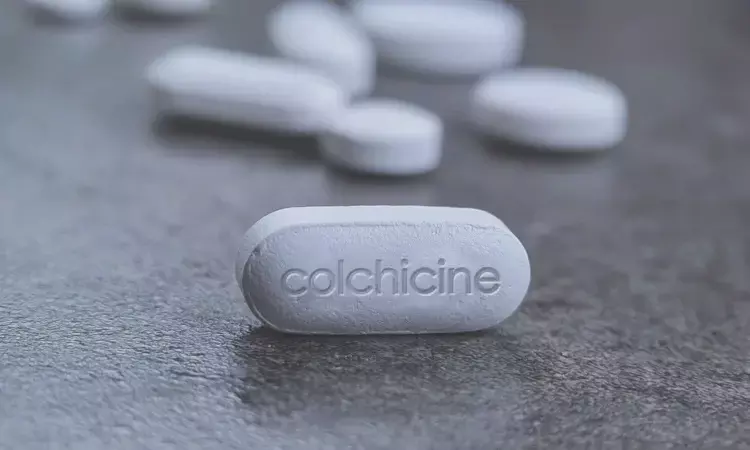- Home
- Medical news & Guidelines
- Anesthesiology
- Cardiology and CTVS
- Critical Care
- Dentistry
- Dermatology
- Diabetes and Endocrinology
- ENT
- Gastroenterology
- Medicine
- Nephrology
- Neurology
- Obstretics-Gynaecology
- Oncology
- Ophthalmology
- Orthopaedics
- Pediatrics-Neonatology
- Psychiatry
- Pulmonology
- Radiology
- Surgery
- Urology
- Laboratory Medicine
- Diet
- Nursing
- Paramedical
- Physiotherapy
- Health news
- Fact Check
- Bone Health Fact Check
- Brain Health Fact Check
- Cancer Related Fact Check
- Child Care Fact Check
- Dental and oral health fact check
- Diabetes and metabolic health fact check
- Diet and Nutrition Fact Check
- Eye and ENT Care Fact Check
- Fitness fact check
- Gut health fact check
- Heart health fact check
- Kidney health fact check
- Medical education fact check
- Men's health fact check
- Respiratory fact check
- Skin and hair care fact check
- Vaccine and Immunization fact check
- Women's health fact check
- AYUSH
- State News
- Andaman and Nicobar Islands
- Andhra Pradesh
- Arunachal Pradesh
- Assam
- Bihar
- Chandigarh
- Chattisgarh
- Dadra and Nagar Haveli
- Daman and Diu
- Delhi
- Goa
- Gujarat
- Haryana
- Himachal Pradesh
- Jammu & Kashmir
- Jharkhand
- Karnataka
- Kerala
- Ladakh
- Lakshadweep
- Madhya Pradesh
- Maharashtra
- Manipur
- Meghalaya
- Mizoram
- Nagaland
- Odisha
- Puducherry
- Punjab
- Rajasthan
- Sikkim
- Tamil Nadu
- Telangana
- Tripura
- Uttar Pradesh
- Uttrakhand
- West Bengal
- Medical Education
- Industry
Colchicine reduces knee and hip replacement in osteoarthritis patients

A 0.5 mg daily dose of colchicine was related with a decreased incidence of total knee replacements (TKRs) and total hip replacements (THRs) in an exploratory analysis of the LoDoCo2 (Low-Dose Colchicine 2) study, says an article published in Annals of Internal Medicine.
Osteoarthritis is a leading cause of pain and disability globally. Anti-inflammatory medicines may decrease disease progression since inflammation has a role in the development of osteoarthritis. As a result, Michelle Heijman and colleagues undertook this trial to see if taking 0.5 mg of colchicine daily lowers the number of total knee and total hip replacements.
The LoDoCo2 (Low-Dose Colchicine 2) controlled, randomized, double-blind experiment from 43 centers in Australia and the Netherlands was examined in this exploratory study. This study included 5522 individuals with persistent coronary artery disease.
The exposure medium was 0.5 mg colchicine or placebo once daily. The primary outcome was the time since randomization to the first TKR or THR. All analyses were conducted with the intent-to-treat principle in mind.
The key findings of this study were:
During a median follow-up of 28.6 months, 2762 individuals took colchicine and 2760 received a placebo.
In the experiment, 68 patients (2.5% in the colchicine group) and 97 (3.5% in the placebo group) had TKR or THR.
Similar results were observed in sensitivity analyses when baseline gout patients were eliminated as well as when joint replacements that took place in the first three and six months of follow-up were not included.
The results of this study provide preliminary evidence that low-dose colchicine may reduce the course of osteoarthritis, but they also noted that this has to be validated in a prospective, placebo-controlled study that is well planned.
Reference:
Heijman, M. W. J., Fiolet, A. T. L., Mosterd, A., Tijssen, J. G. P., van den Bemt, B. J. F., Schut, A., Eikelboom, J. W., Thompson, P. L., van den Ende, C. H. M., Nidorf, S. M., Popa, C. D., & Cornel, J. H. (2023). Association of Low-Dose Colchicine With Incidence of Knee and Hip Replacements. In Annals of Internal Medicine. American College of Physicians. https://doi.org/10.7326/m23-0289
Neuroscience Masters graduate
Jacinthlyn Sylvia, a Neuroscience Master's graduate from Chennai has worked extensively in deciphering the neurobiology of cognition and motor control in aging. She also has spread-out exposure to Neurosurgery from her Bachelor’s. She is currently involved in active Neuro-Oncology research. She is an upcoming neuroscientist with a fiery passion for writing. Her news cover at Medical Dialogues feature recent discoveries and updates from the healthcare and biomedical research fields. She can be reached at editorial@medicaldialogues.in
Dr Kamal Kant Kohli-MBBS, DTCD- a chest specialist with more than 30 years of practice and a flair for writing clinical articles, Dr Kamal Kant Kohli joined Medical Dialogues as a Chief Editor of Medical News. Besides writing articles, as an editor, he proofreads and verifies all the medical content published on Medical Dialogues including those coming from journals, studies,medical conferences,guidelines etc. Email: drkohli@medicaldialogues.in. Contact no. 011-43720751


